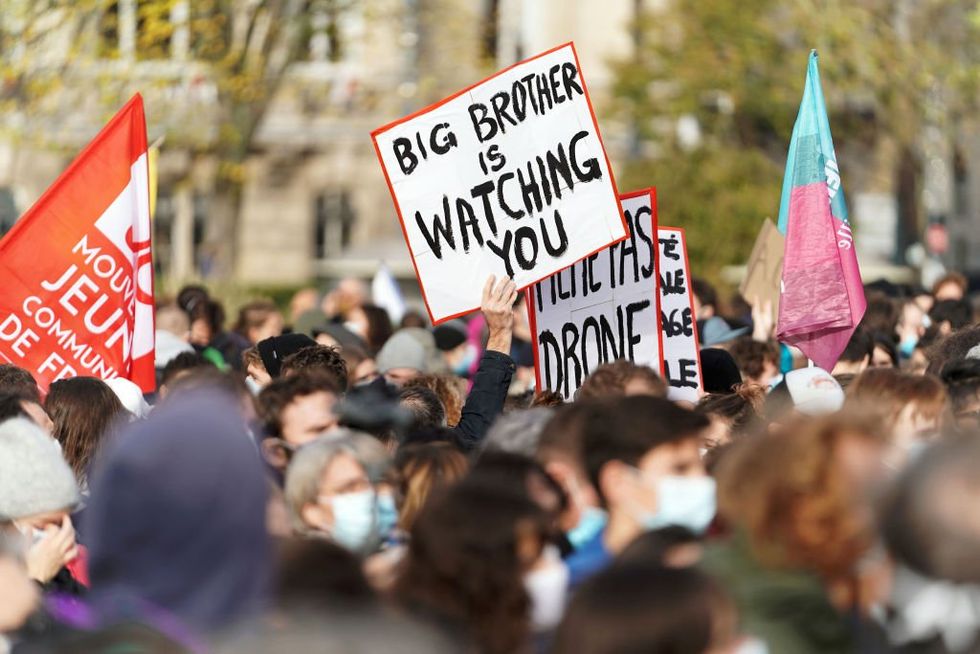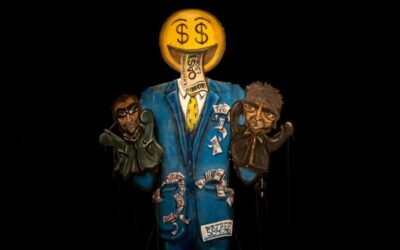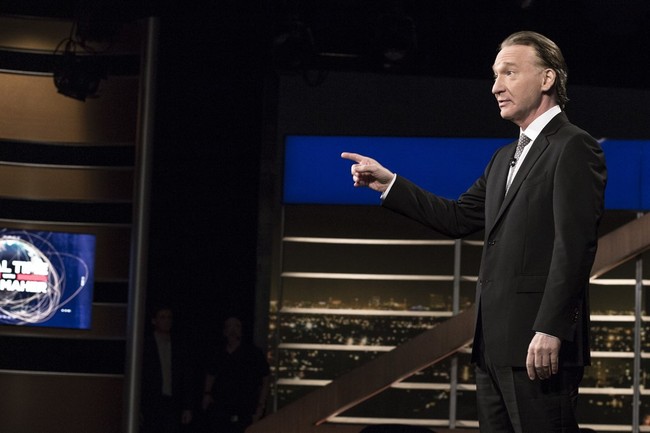We’re on the verge of Orwell’s Thought Police becoming a reality in Ireland

As Donald Trump prepares to re-enter the White House in January, the push to police “truth” is gaining momentum.
Literally. With real cops.
Police1, a powerful arm of “public safety policy management” behemoth Lexipol, is reshaping law enforcement across the United States — though certainly not for the better.
Barring decisive pushback, the madness spreading across the UK and Ireland will soon find its way into the United States.
You see, Police1 is busy preparing officers to confront what it labels the “misinformation” crisis of the digital age. If they’re not already prepared, the author of a recent article on the Police1 website, Joseph J. Lestrange, insists they should be.
But Lestrange isn’t your average op-ed writer. As a former high-ranking official in the Biden administration, he sees misinformation and disinformation not as minor nuisances but as direct threats — ones that erode public trust, fuel hostility toward officers, and undermine police operations. With AI-powered tools like deepfakes and manipulated audio, he warns, these threats have reached unprecedented sophistication, opening the door to ever more calculated assaults on public perception. At the same time, these threats open the door to another possible assault — specifically, law enforcement overreach.
As the fight against misinformation intensifies, “Big Brother” risks morphing into an even more pervasive “Bigger Brother,” blurring the line between protection and control. More of the latter. Much less of the former.
Lestrange suggests that police agencies adopt “Misinformation/Disinformation Units” to identify, fact-check, and counter false narratives. This move would position law enforcement as responders and architects of public perception, armed with the power to collaborate with tech giants and preemptively flag “harmful” content. Lestrange frames the unholy alliance to protect officers and rebuild community trust.
But these units, if created, would cast a dark shadow and raise serious concerns about transparency, civil liberties, and unchecked power. If Edward Snowden taught us anything — now over a decade ago — it’s that government tools meant for “protection” can easily slip into surveillance and control tools, threatening the very freedoms they claim to defend.
Not surprisingly, Lestrange’s promises of “impartial policing” ring hollow. These units risk becoming tools for selective narrative control — amplifying certain voices and silencing others. The report’s concerns about eroding public trust underscore how fragile this balance is; if law enforcement assumes the role of “truth arbiter,” any misstep or bias will swiftly deepen public distrust. Let me be clear here. This isn’t an attack on officers. Most boys (and girls) in blue are decent, honorable people. The real issue lies with the powerful few who officers must answer to. Those behind the curtain pull the strings not to protect us but to manipulate and control us.
The implications are potentially dire with Police1 and Lexipol driving this model nationwide. By framing narrative control as essential to policing, Lexipol pushes departments to blur the line between traditional duties and digital influence. This shift should raise alarms: It marks a slippery slope into content moderation — a realm typically reserved for independent platforms, not government agencies. We’re on the verge of Orwell’s Thought Police becoming a reality.
Some essential questions must be asked. Who will hold these “misinformation” units accountable? What will prevent personal or political biases from determining what gets flagged as “harmful”? Without strict transparency and oversight, these units risk becoming unchecked gatekeepers of information, placing the public’s right to knowledge — and the integrity of law enforcement — in jeopardy.
The threat is not hypothetical; it is already a reality in the U.K., where similar units have been established, wielding considerable influence over what is deemed “truth.” In my own country, Ireland, people are already being arrested for “misgendering” others. Referring to a biological man who believes he’s a woman isn’t just expected — it’s now mandatory. Calling him what he truly is can land you in prison for years. In other words, speaking the truth is now a punishable offense.
This raises crucial concerns about who holds the power to decide what constitutes “mis” or “dis” information. During the COVID-19 pandemic, the public witnessed how accurate yet dissenting narratives were swiftly demonized, labeled misinformation, and suppressed. Such tactics delegitimized valid perspectives, leading to a chilling effect on open dialogue. In the U.S., if Lexipol’s framework for misinformation units is adopted without strict oversight, the implications could be similarly far-reaching, threatening the plurality of voices that is fundamental to democracy.
And as public safety agencies venture into content moderation, the question of who defines “truth” will become increasingly critical — and potentially contentious — highlighting the need for clear, accountable practices to safeguard public trust and democratic integrity. Barring decisive pushback, the madness spreading across the U.K. and Ireland will soon find its way into the United States.
As Trump’s team readies to take charge, his allies like Elon Musk and Vivek Ramaswamy must push back against a state apparatus eager to police thought — a system the current administration eagerly embraces.










